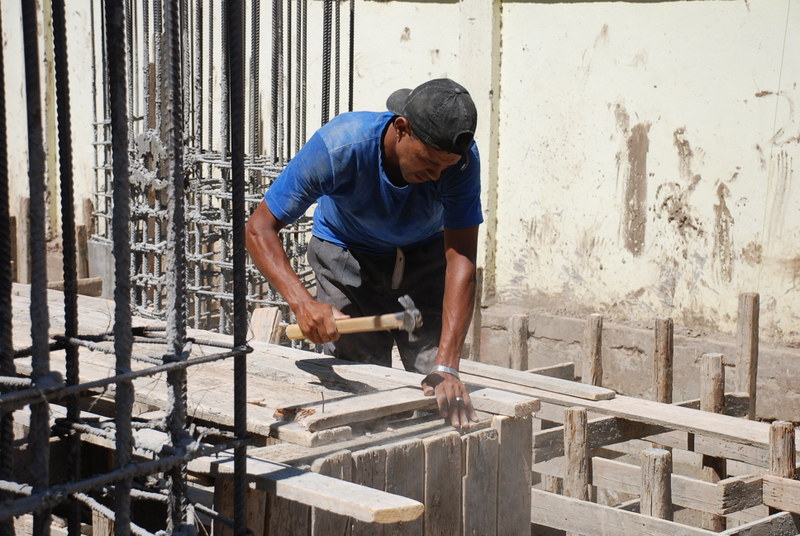CAIRO: Homeopaths in Egypt not only meet patients, diagnose them and prescribe remedies, but they also face a struggle for recognition and fight a battle to acquire the legal status their counterparts abroad enjoy.
With a great deal of passion for her job, along with strong convictions about the effect of homeopathy, Nazli Shafik is not just a practitioner of this type of alternative medicine but also a board member of the Egyptian Society for Homeopathy.
Within this society, members are working toward establishing legal recognition for the science of homeopathy. A main objective is to educate people about this branch of medicine and its benefits, says Shafik.
Meanwhile, homeopaths also face the rejection of conventional physicians. “Many of them [conventional physicians] resist [homeopathy] because they may feel it is a threat, while others may not be fully aware of its valuable therapeutic effect, says Shafik.
She explains that homeopathy in specific and alternative medicine in general pose no threat to conventional medicine because both branches of medicine are not only important, but necessary. Through the integration of both homeopathic/alternative and allopathic/conventional medicines, a more effective system of health care can emerge.
This rejection or “resistance is probably due to the different approaches of the two practices. Homeopathic remedies work by boosting the immune system so it can fight disease naturally, whereas conventional medicine directly attacks the disease.
“Your Lord created you with an immune system that is strong to fight disease, Shafik adds. “And what homeopathy does is work on this God-given mechanism.
Furthermore, homeopathy is a holistic treatment that requires knowledge of the mental and the emotional states of the patient in addition to a physical examination. During a 45-minute interview, the homeopath builds an understanding of the patient’s emotional and mental issues.
You end up, sometimes, having to go back years and years in history to understand their mental and emotional constitutions, says Shafik, “Have they had severe grief? Have they had any mental, emotional or physical shocks before?
Trained to acquire the needed data about her patients in no more than an hour, Shafik then takes her time to analyze their answers and come up with a suitable prescription – she notes that several people suffering from the same physical symptoms might end up with different prescriptions depending on their individual mental and emotional states.
The vast majority of the remedies, of course, consist of natural ingredients: animals, plants and minerals. “However, no substance exists in the final product. The remedies are diluted to such an extent that what remains is the energy of the original substance. Contrary to conventional medicine, “the more you dilute [the remedy] the higher is the potency.
Opening her kit, Shafik reveals finger-length bottles filled with small granules constituting the base of the remedies she prescribes. “There are several thousand homeopathic remedies, she continues. “And throughout our years of study, we are trained to choose which one is appropriate for each individual.
Due to difficulties in getting a regular supply of remedies, Shafik says she depends on reproducing what she already has at home. It is not, however, the only thing she does at home; Shafik works there too.
Throughout the past five years she has been treating patients free of charge using her home as a base; authorities “tolerate homeopathy clinics but without official licenses. Because she is “very much convinced of homeopathy and its “wonderful results, Shafik continues practicing it.
Referring to the way society expects women to prioritize their roles as mothers and wives over their careers, she says it is natural for women to face problems. “Not only are you expected to perform perfectly on the job but you are also at home. So it’s a full-time job constantly. So, yes, it’s difficult to balance the two [career and personal obligations].
Shafik, who used to teach English language at the American University in Cairo, was able to raise the awareness of homeopathy among generations of students. Now, she says, more people in Egypt are aware of this type of treatment. Due to its effectiveness and lack of side effects, many are interested in trying it out, she adds.
“Even if I take a wrong remedy, nothing will happen. It will only work if you need the remedy, she says, recalling an incident where her daughter thought the diluted remedy was a regular bottle of water and drank it by mistake. “It’s as if she never took it, because it didn’t resonate with her energetically, she explains. Shafik’s daughter was the one who got her interested in homeopathy in the first place. Shafik recalls how her daughter looked “drugged from the endless list of prescribed antibiotics aimed at treating influenza and colds. When they both tried homeopathy as an alternative, Shafik got hooked.
Shafik then studied homeopathy at the London International College of Homeopathy. Through a two-year study program held in Cairo, during which professors flew to the Egyptian capital almost every month, Shafik earned her certificate. Five years later she has many success stories to tell.
Shafik has been successful in treating a wide variety of conditions, from acute diseases like sore throats, diarrhea and food poisoning, to chronic diseases such as diabetes and nicotine addiction. Her list of successes includes certain types of obesity, emotional and mental problems like depression and phobias, liver ailments, hormonal issues such as those related to menopause, and skin diseases to name a few.


